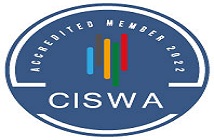Human resources (HR) plays an important part in helping a company develop and thrive through the labour its employees provide. The principles of HR are intended to show how one can have better relations with employees in the workplace, and to bring out the best work ethic of the employees with a better working environment.
The Purpose of HR in a Company
The purpose of HR is to maximise the productivity of an organisation by optimising the effectiveness of its employees. HR professionals are responsible for managing relationships between employees and the companies they work for.
HR is concerned with managing people in the organisation. It is designed to maximise employee’s’ performance to achieve the employer’s strategic objectives. HR responsibilities include recruiting and training job applicants, as well as managing employee-benefit programs.
The Key Role of HR
The HR department is responsible for many people-related matters in an organisation.
-The process of recruiting suitable candidates for the organisation
-Identifying and meeting the training needs of existing staff
-Ensuring employee welfare and employee relations are positive
-Ensure the working environment is safe for employees
-Raising awareness of current workplace legislation
Functions of HR
The objective of an HR manager is to build up the employer-employee relationship. This goal is supported by a selection of functions within the HR department and throughout the organisation.
In a small business, the HR manager should have a great degree of latitude, as well as the time to devote to employee interaction with a small workforce. These are the key elements of effective HR as a leader, although it must accomplish a number of functions to achieve this goal.
Manage HR Department
The HR manager is responsible for ensuring that department employees are well-versed in their areas of expertise. The various disciplines of HR require expertise in compensation, benefits, safety, payroll, recruiting and training. Ideally, the HR manager is a generalist, which means they have cross-discipline expertise.
Executive Leadership Interaction
An effective HR manager is in constant communication with the executive leadership. The HR department is not a revenue-generating source. It is important for an organisation’s leaders to understand the return on investment (ROI) in HR activities as a contribution to the company’s bottom line. The HR manager for a small business can easily implement methods and strategies that may show faster results.
Employee Relations
Another function of the HR manager is to gain the trust and confidence of employees. The best way to establish trust and confidence is through daily interactions with the staff. Employee relations are a large part of the HR manager’s job because employee concerns encompass a wide range of issues over which the manager has influence. The HR manager is the “face of HR” and therefore has to be relied upon to be both an HR expert and employee advocate.
Conclusion
HR occupations require strong interpersonal skills. In the fast-paced environment of HR, it is important to seek leadership training that builds the skills most desired by hiring executives. Securing leadership knowledge, as well as developing the practical skill needed for success are necessary.
For those interested in earning a diploma in HR Management, many colleges and universities in Perth offer this course. To view a sample of this course, please click on this link.







